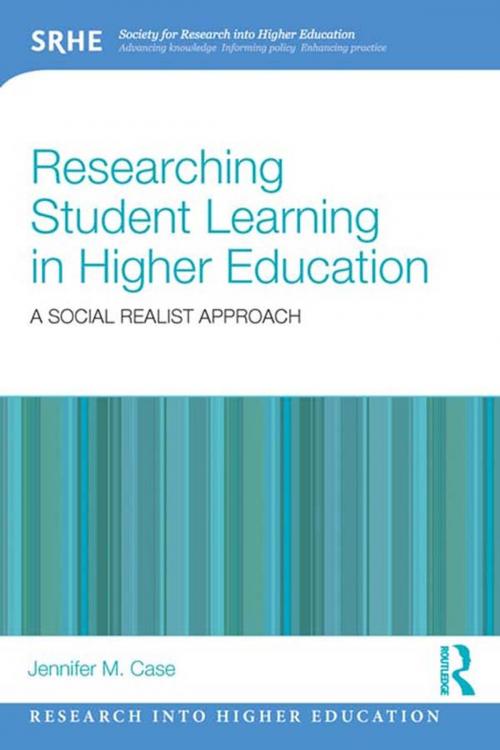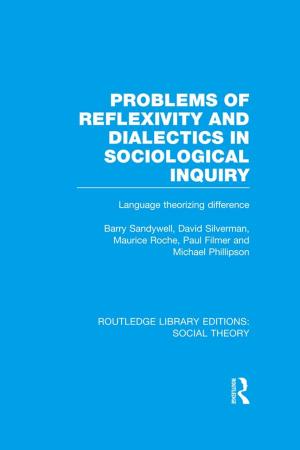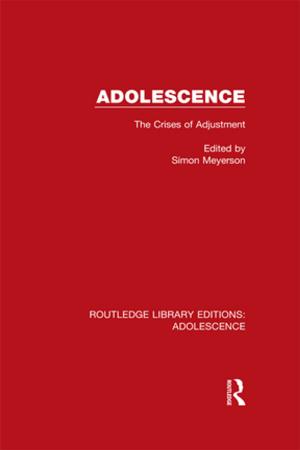Researching Student Learning in Higher Education
A social realist approach
Nonfiction, Reference & Language, Education & Teaching, Student & Student Life, Higher Education| Author: | Jennifer M. Case | ISBN: | 9781135120849 |
| Publisher: | Taylor and Francis | Publication: | July 31, 2013 |
| Imprint: | Routledge | Language: | English |
| Author: | Jennifer M. Case |
| ISBN: | 9781135120849 |
| Publisher: | Taylor and Francis |
| Publication: | July 31, 2013 |
| Imprint: | Routledge |
| Language: | English |
Many contemporary concerns in higher education focus on the student experience of learning.With a larger and much more diverse intake than ever before, linked with a declining unit of resource, questions are being asked afresh around the purposes of higher education. Although much of the debate is currently focused on issues of student access and success, a simple input-output model of higher education is insufficient.
This book turns this conversation on its head, by inserting a full consideration of student agency into the context of higher education.Working sociologically, it explores the influence of the social context on what the individual student achieves. The theoretical tenets of a social realist approach are laid out in detail in the book; the potential value of this approach is then illustrated by a case study of student learning in engineering education.Employing Margaret Archer’s social realist theory, an analysis of student narratives is used to work towards a realist understanding of the underlying mechanisms that constrain and enable student success.Building on this analysis, the book develops a novel set of proposals for potential ways forward in improving student learning in higher education.
Many contemporary concerns in higher education focus on the student experience of learning.With a larger and much more diverse intake than ever before, linked with a declining unit of resource, questions are being asked afresh around the purposes of higher education. Although much of the debate is currently focused on issues of student access and success, a simple input-output model of higher education is insufficient.
This book turns this conversation on its head, by inserting a full consideration of student agency into the context of higher education.Working sociologically, it explores the influence of the social context on what the individual student achieves. The theoretical tenets of a social realist approach are laid out in detail in the book; the potential value of this approach is then illustrated by a case study of student learning in engineering education.Employing Margaret Archer’s social realist theory, an analysis of student narratives is used to work towards a realist understanding of the underlying mechanisms that constrain and enable student success.Building on this analysis, the book develops a novel set of proposals for potential ways forward in improving student learning in higher education.















